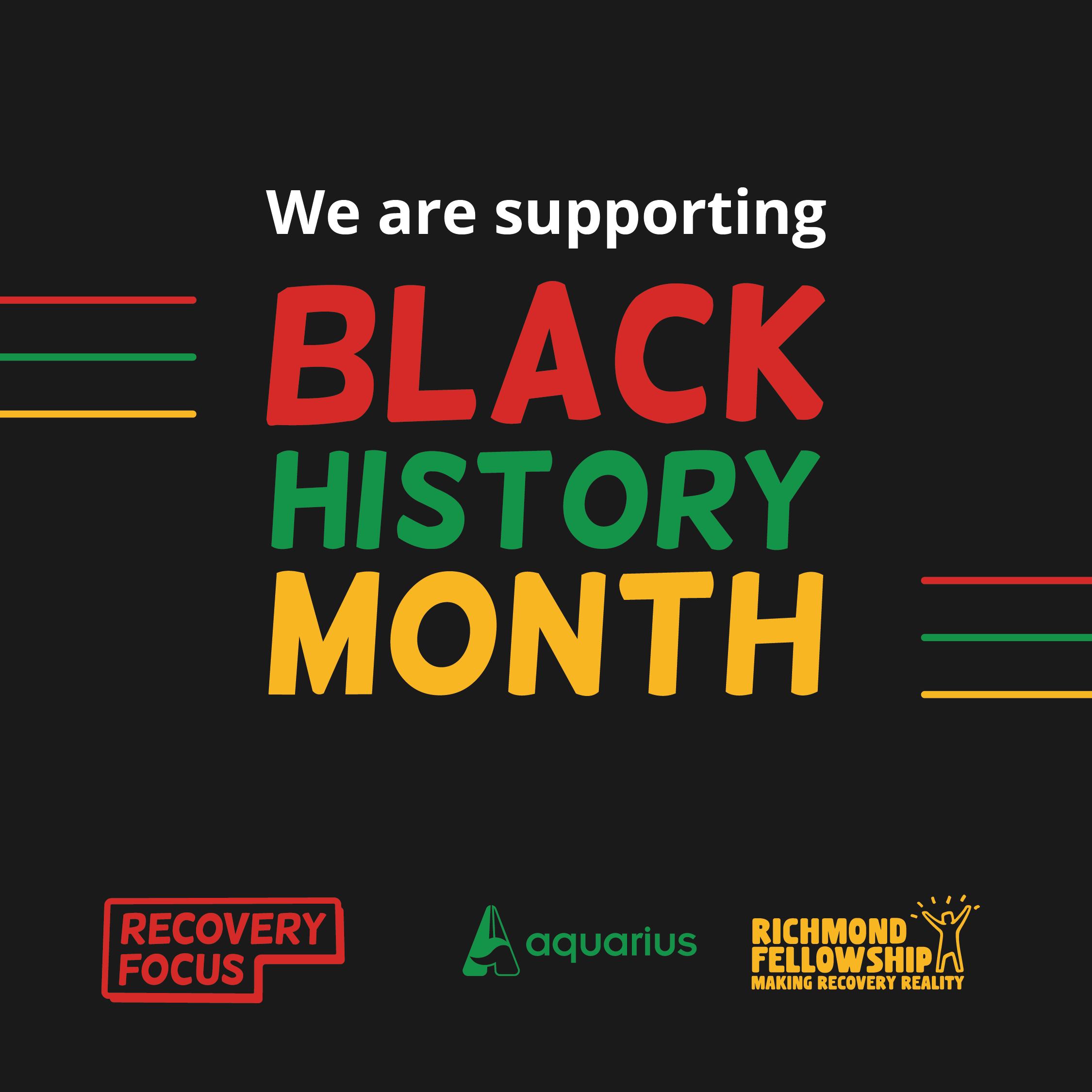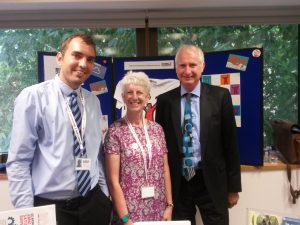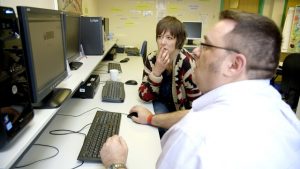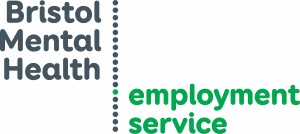Black History Month – sharing stories from our services
 October is Black History Month, this year we have adopted the theme from a respected official Black History month organiser ‘Time For Change: Action Not Words’. This year is about going beyond celebrating and remembering history, we want to recognise the achievements and contributions that Black people and the Black community make to the UK every day.
October is Black History Month, this year we have adopted the theme from a respected official Black History month organiser ‘Time For Change: Action Not Words’. This year is about going beyond celebrating and remembering history, we want to recognise the achievements and contributions that Black people and the Black community make to the UK every day.
In keeping with this Recovery Focus and its partners want to celebrate what services, staff and people we support are doing to mark Black History Month and make a difference in their local communities.
Today we are hearing from Nisha, one of our Employment Specialist’s at our Surrey Employment Advisor’s in IAPT (Improving Access to Psychologial Therapies) Service. Our Employment Services support people experiencing mental ill health to regain meaningful employment, training, education or volunteering opportunities that are right for them.
Nisha shares the story of a person we supported who experienced microaggressions in the workplace, which have led to a job tribunal. Nisha walks us through the support she offered at our Surrey IAPT Employment Service, and shares her own thoughts on microaggressions and stereotyping in the workplace.
I am an Employment Specialist working jointly with IAPT services in Surrey at our Richmond Fellowship Surrey EA’s in IAPT Service. I have been working as an Employment Specialist for almost three years.
The experience of our client
Six months ago, I received a referral from a therapist, this client wanted to find another job or to resolve her current work situation. When I spoke to this client, she reported that she was working as a waitress but had been suspended from work with full pay. This client is a black woman and was suspended because of behaviour the employer claimed was inappropriate.
The client received a call from her manager accusing her of not completing a task. The manager used foul language over the phone and threatened to fire her, the client was shocked with everything she heard and felt bullied. She decided to go into work to explain the misunderstanding.
In the office, she found her white manager and colleagues, the client meant no harm, but her behaviour was perceived as aggressive, she was asked to leave the premises, as she did one of her work colleagues used inappropriate language towards her.
She was called for a meeting regarding her behaviour and then was shown a camera which she didn’t know was in the office. The decision made by her company was for her behaviour to be monitored for 12 months without training.
The support we gave at Surrey EA’s in IAPT
When she came to Surrey EAs in IAPT, she wanted to appeal against the suspension and make a grievance appeal against her two-work colleagues. In our sessions we focused on the suspension appeal and have been asking her company to provide the sound of the video, as the video was used as evidence for the suspension even though it does not have any sound.
Her company claimed she was aggressive and inappropriate towards her work colleagues. She has been arguing that it is difficult for them to measure her body language as aggressive without hearing the foul and racial comments they are using towards her.
Because we are not legally trained, I referred her to ACAS and a no win no fee lawyer to look at her case and see if she was subject to racial discrimination. In this case, the client was assigned an early conciliator, who is a mediator on her behalf.
She personally thinks she was discriminated against because of her expression, which did not mean any harm, but it was perceived as aggressive behaviour. The company also have hidden the verbal abuse she received and ignored the foul and abusive language directed at her from work colleagues.
My client fully lost her confidence and trust to work with white people because of the treatment she received from her current employer. She lost weight and hair because of the stress, and in one of our sessions she broke down in tears when she tried to explain her side of the story.
I worked with her on building up her confidence to get back to work, by looking at her previous work achievement and contribution she made. We worked on her CV and interview preparation. As an employment specialist, I could also notice her confidence building up and now she is more aware of her employment and worker rights. She now works part time hours and is working with ACAS to solve her case that is still ongoing.
My view on microaggressions in the workplace
As an employment specialist and a woman of colour, I have dealt with a few cases, like this one, about racial discrimination at work as well as hearing from other BAME people about how they have to deal with microaggressions in the workplace.
Microaggression is an insensitive and problematic action or statement that often plays into racial stereotypes.
Examples of microaggressions include:
- Not taking the care to correctly pronounce someone’s name or asking to shorten it.
- Denying someone’s racial ethnicity by stating that ‘you don’t see colour’.
- Like this experience above, assuming a black woman is being loud and aggressive.
We should all call out microaggressions when we see them.
I strongly believe that cultural awareness is a positive way forward to tackle racial discrimination and microaggressions at work. We should encourage learning of other people’s cultural norms, belief, attitudes, and behaviours, rather than allowing cultural barriers to feed into the stereotyping and prejudice narrative.
It would be good to have an environment where people could learn about other cultures and behaviours rather than just white cultural norms. For example, African and Caribbean cultures can be more expressive which may be perceived as nosy, overconfident, or disruptive by more conversative personalities. We need the space to learn about our differences.
Other ways to counter microaggression is to encourage microaffirmation in the workplace. Microaffirmations are tiny acts of opening doors to opportunity, gestures of inclusion and caring, and graceful acts of listening.






















